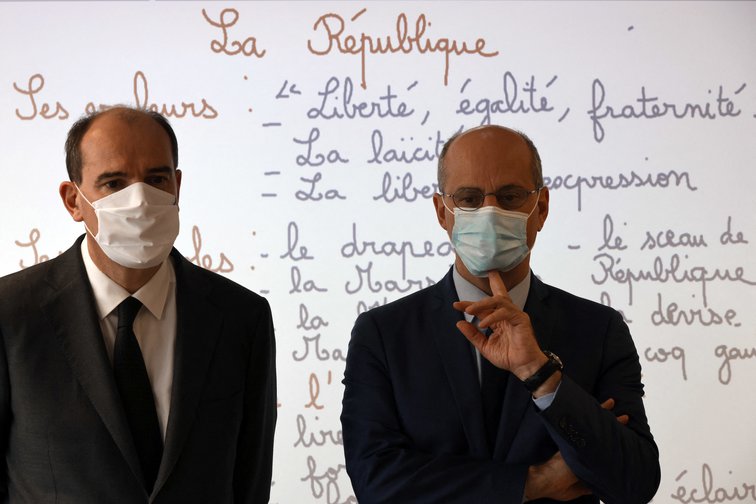
Academic freedom in the context of France’s new approach to 'separatism'
From now on, academic freedom will be exercised within the limits of the values of the Republic. Or not.

For months, France has been severely weakened by a deepening economic crisis, violent social tensions, and a health crisis out of control. The barbaric assassination of history professor Samuel Paty on October 16 in a Paris suburb and the murder of Vincent Loquès, Simone Barreto Silva, Nadine Devillers in the Notre-Dame basilica in Nice on October 29 have now plunged the country into terror.
Anger, bewilderment, fear and a need for protection took over French society. French people should have the right to remain united, to understand, to stay sharp, do everything possible not to fall into the trap set by terrorists who have only one objective: to divide them. It is up to politics to lead the effort of collective elaboration of the mourning, to ensure the unity of the country. But that's not what is happening. Politics instead tries to silence any attempt at reflection tying itself in knots to point the finger at the culprit, or, better yet, the culprits.
In the narrative of the French government, there are two direct or indirect sources responsible for the resurgence of terrorism: abroad, the foreign powers which finance mosques and organizations promoting the separatism of Islamic communities, and consequently – as is only logical on the perpetually slippery slope of Macronist propaganda – terrorism; at home, it is the academics.
It is true that the October attacks coincided with tensions which have been increasing for months between France and Turkey on different fronts: Syria, Libya, Nagorno-Karabakh, and above all the Eastern Mediterranean. And it is also true that the relationship between international tensions and the resurgence of terrorism needs to be explored. However, the allusion to the relationship between the role of academics and these attacks is simply outrageous and instrumental, aimed only at discrediting the category of academics engaged in recent weeks in a desperate struggle to prevent the passing of a Research programming law, which violently redefines the methods of funding and management of research projects, the status, the prerogatives as well as the academic freedom of university professors.
We’ve got a newsletter for everyone
Whatever you’re interested in, there’s a free openDemocracy newsletter for you.
Regaining control?
“A teacher died and other teachers are being blamed for it" wrote the sociologist Eric Fassin, alluding to a long series of attacks that have been reiterated in recent months on the French university community – a community guilty, according to Macron and his collaborators, of excessive indulgence in the face of "immigration, Islam and integration".
"I must regain control of these subjects", said Emmanuel Macron a year ago to the extreme right-wing magazine Valeurs Actuelles. A few months later, in the midst of a worldwide struggle against racism and police violence, Macron, scandalized by the winds of revolt – rather than by racism and police violence in themselves – explained to Le Monde that "The academic world has been guilty. It has encouraged the ethnicization of social issues, thinking that this was a good path to go down. But the outcome can only be secessionist.” The Minister of National Education Jean-Michel Blanquer, presenting in June 2020 to the Senate's commission of inquiry on Islamist radicalization, had evoked for his part, "the permeability of the academic world with theories that are at the antipodes of the values of the Republic and secularism", citing specifically "the indigenist theories".
A few days after the homicide of Samuel Paty, in an interview with Europe 1, the minister accused academics of "intellectual complicity with terrorism", adding that "Islamo-leftism wreaks havoc in the University"… "favoring an ideology that only spells trouble". Explaining himself further in Le Journal Du Dimanche, on October 24, Blanquer reiterated these accusations, specifying: "There is a fight to be waged against an intellectual matrix coming from American universities and intersectional theses that want to essentialize communities and identities, at the antipodes of the Republican model, which postulates the equality between human beings, independently of their characteristics of origin, sex, religion. It is the breeding ground for a fragmentation of societies that converges with the Islamic model”.
A Darwinian law
Such accusations and interferences have provoked many reactions of indignation, including that of the Conférence of University Presidents. However, nothing was sufficient to see the attack off. On Friday evening, after the launch of a fast-track procedure that effectively muzzled the debate, the Senate approved the research programming law. In many respects, this is the umpteenth banal neo-liberal, or, more exactly, admittedly Darwinian, reform of the French university: precarisation of the work of teachers, concentration of the funds on a limited number of “excellent” poles and individuals, promotion of competition between individuals, institutions and countries, strengthening of the managerial management of research, weakening of national guarantee structures and, more generally, weakening of self-governance bodies.
But this law also contains a clear and astounding plan to redefine the respective roles of science and politics. The article of the law currently in force, which very effectively and elegantly defined the meaning of academic freedom:
"Teacher and researchers enjoy full independence and complete freedom of expression in the exercise of their teaching functions and their research activities, subject to the reservations imposed on them, in accordance with university traditions and the provisions of this code, the principles of tolerance and objectivity", has been amended by the addition of this sentence:
“Academic freedoms are exercised with respect for the values of the Republic”
This addition which is in itself an outrage against the principles of the separation of powers and academic freedom has been joined by an explicit reference to the events of these days:
"The terrible tragedy in Conflans-Sainte-Honorine shows more than ever the need to preserve, within the Republic, the freedom to teach freely and to educate the citizens of tomorrow", states the explanatory memorandum. "The purpose of this provision is to enshrine this in law so that these values, foremost among which is secularism, constitute the foundation on which academic freedoms are based and the framework in which they are expressed.”
The emotion engendered by the murder of innocent people was therefore well and truly exploited in an ignoble manner to serve the anti-democratic objective of limiting academic freedoms and setting the choices of the subjects to be studied, as well as the “intellettual matrix” to be adopted under the surveillance today of the presidential majority and tomorrow, who knows?
To confirm this reading of the priorities of the majority and the fears it arouses, on Sunday November 1, Thierry Coulhon, adviser to the President of the Republic was appointed, through a “Blitzkrieg”, head of the Haut Council for the Evaluation of Research and Higher Education (Hceres), the national body responsible for the evaluation of research.
A few details of this law, including the amendment on the limits of research freedom, may still change in the joint committee to be held on November 9. But the support of academics, individuals, organizations, scholarly journals, for the Solemn appeal for the protection of academic freedom and the right to study is now more urgent and necessary than ever.
Read more
Get our weekly email




Comments
We encourage anyone to comment, please consult the oD commenting guidelines if you have any questions.